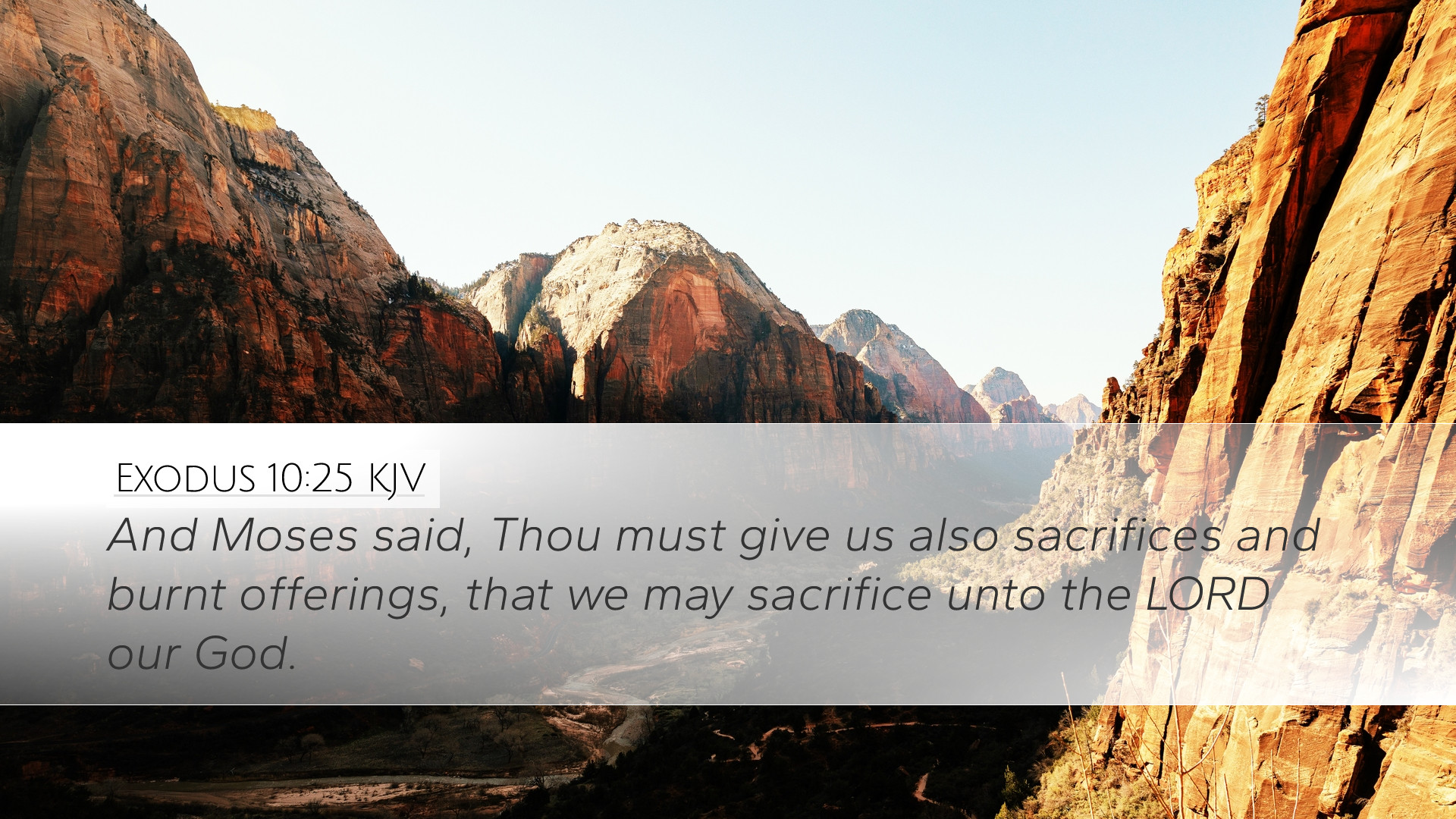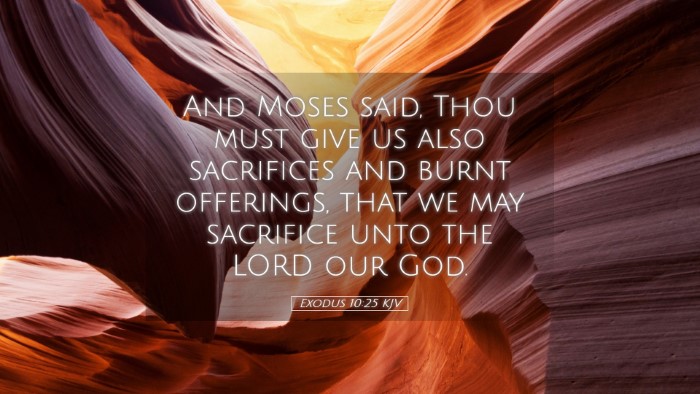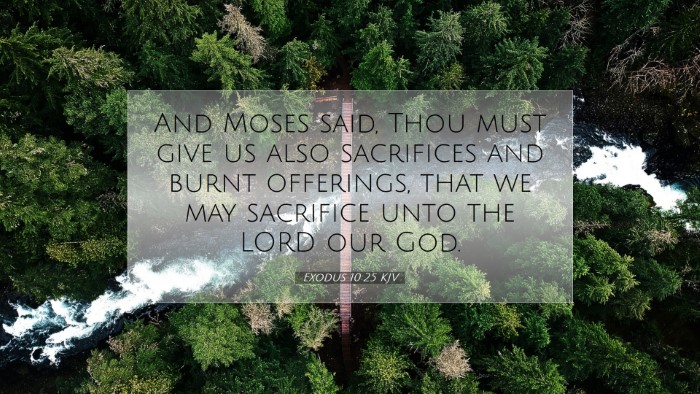Commentary on Exodus 10:25
Exodus 10:25 states: "And Moses said, Thou must give us also sacrifices and burnt offerings, that we may sacrifice unto the Lord our God." This verse is crucial in understanding the dynamics of the confrontation between Moses and Pharaoh, and it opens up theological discussions surrounding worship, obedience, and divine sovereignty.
Contextual Overview
The backdrop of this verse lies in the series of plagues that God unleashed upon Egypt, aimed at persuading Pharaoh to release the Israelites from slavery. Each plague demonstrated God's power over Egyptian gods and highlighted Pharaoh's hardness of heart. The demand for sacrifices reflects the Israelites' need to worship God as commanded.
Insights from Public Domain Commentaries
Matthew Henry's Commentary
Matthew Henry emphasizes the significance of this verse in portraying both the earnestness of Moses and the stubbornness of Pharaoh. He notes that the requirement for sacrifices is not mere formality but is essential for the Israelites' identity as God's people. In essence, Henry argues that true worship cannot be divorced from obedience, as God desires not just freedom but also a covenantal relationship characterized by sincere devotion. Henry also critiques Pharaoh's reluctance to acknowledge God’s authority, seeing in it a reflection of human pride that resists divine will.
Albert Barnes' Notes on the Bible
Albert Barnes elaborates on the theological implications present in this request for sacrifices. He points out that this moment underscores the importance of worship in the life of the Israelites, suggesting that ritualistic offerings are integral to their covenant with God. Barnes stresses that the sacrifices posited in this exchange represent not just acts of worship but also a declaration of freedom for the Israelites, affirming their identity as a people set apart for God's purposes. Additionally, he highlights that Moses' insistence on these sacrifices amidst the plagues illustrates the gravity and seriousness of true worship, which cannot be compromised even in the face of suffering.
Adam Clarke's Commentary
Adam Clarke offers a rich historical perspective, noting that the Israelites' request for sacrifices aligns with their covenant obligations to God. Clarke draws attention to the devastating consequences of neglecting proper worship, arguing that Pharaoh's obstinance not only leads to further calamity for Egypt but also reflects a broader stance of rebellion against God. Clarke emphasizes that worship must be rooted in the divine order, and the sacrifices demanded by Moses are not merely practical but serve to fulfill the properly ordained expression of loyalty to God. He asserts that this encounter signifies the demand for recognition of God's authority over both Israel and Egypt.
Theological Reflections
This exchange is laden with significance for contemporary worship and ministry:
- Worship as Identity: The call for sacrifices underlines that worship is central to identity in Christ; believers are called to a life that expresses devotion and allegiance to God.
- Obedience and Authority: This request sheds light on the call to submit to God’s authority, illustrating the importance of obedience in the context of worship.
- Redemption and Sacrifice: The link between sacrifices and the deliverance of God’s people foreshadows the ultimate sacrifice of Christ, serving as a reminder of the cost of grace and the significance of atonement.
- Witness to the Nation: As Moses advocates for worship, it reflects a broader missional imperative, where the worship of God is shown to be a witness to the nations about His power and sovereignty.
Conclusion
Exodus 10:25 serves not only as a pivotal moment in the narrative of Israel's deliverance but also as a profound theological statement regarding the essence of worship and obedience. The commentaries from Henry, Barnes, and Clarke collectively illuminate the complexity and depth of the interaction between Moses and Pharaoh, urging readers, pastors, and scholars to reflect on the nature of their worship and understanding of God's authority. Each insight fosters a deeper comprehension of our covenant relationship with God, calling for a recommitment to sincere and unwavering worship in our lives.


